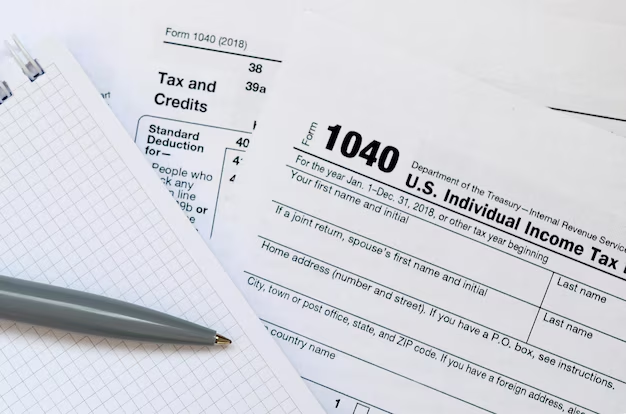Understanding Pennsylvania's State Income Tax: What You Need to Know
Navigating state tax laws can often feel like traversing a labyrinth. One common question is whether Pennsylvania requires residents to pay state income tax. If you're living in or considering a move to Pennsylvania, understanding its tax system is crucial. Let's delve into whether Pennsylvania has a state income tax and explore key aspects for residents and soon-to-be residents.
Yes, Pennsylvania Does Have a State Income Tax
Key Features of Pennsylvania's State Income Tax
Flat Tax Rate: Unlike states with progressive tax rates where your tax rate increases as your income grows, Pennsylvania employs a flat tax rate. As of 2023, this rate is 3.07% on taxable income, among the lowest flat rates in the United States.
What Counts as Taxable Income? Pennsylvania taxes several types of income, such as:
- Salaries and wages
- Dividend and interest income
- Business profits
- Net gains from property sales or other assets
How Does Pennsylvania Compare?
While Pennsylvania's flat 3.07% rate is straightforward, how does it stand against other states?
- No Income Tax States: States like Florida, Texas, and Nevada impose no state income tax. However, these states may generate revenue through higher sales or property taxes.
- Progressive Tax Rate States: States like California and New York have progressive systems, with tax rates that increase based on income. This can sometimes result in higher effective tax rates for high earners compared to Pennsylvania.
Beyond the Basics: Understanding Deductions and Exemptions
Standard Deductions and Personal Exemptions
Unlike the federal government, Pennsylvania does not offer standard deductions or personal exemptions. This setup simplifies taxation calculations but means taxpayers cannot reduce their taxable income via standard deductions.
Tax Credits and Special Provisions
Employers and taxpayers can benefit from certain credits:
- PA 529 College Savings Program: Contributions to Pennsylvania's 529 plan are not subject to punitive taxes if used for educational expenses.
- Employment Incentive Payment Credit: Businesses may receive this credit for hiring individuals from specific target groups.
Practical Tips for Pennsylvania Taxpayers
Navigating Pennsylvania taxes is relatively straightforward due to its flat tax rate and simplicity. Here are some tips for managing your state taxes effectively:
- 📝 Keep Accurate Records: Ensure records of income and any pertinent documentation for tax credits.
- 📊 Invest in Tax Software or a Professional: Especially if you have diverse income streams or employ people.
The Operational Aspect: Filing and Deadlines
Filing Your Tax Return
The deadline for filing state income tax returns in Pennsylvania aligns with the federal tax deadline, typically mid-April. For the 2023 tax year, that deadline is April 17, 2024. Missing this can result in penalties, so timeliness is crucial.
E-filing and Payment Options
Pennsylvania offers a range of convenient e-filing options. You can do this through various software providers or directly via the state's official website. Here are some options for payment and filing:
- 💳 Online Payments: Use credit or debit cards for swift tax payments.
- 🖥️ E-filing: Fast and often free through online platforms.
A Broader Perspective: Local Tax Implications
Local Earned Income Tax
Besides state income tax, many Pennsylvania municipalities impose a local earned income tax (EIT), which typically ranges from 1% to 3%. Understanding your local residency and work municipality's tax requirements is key to comprehensive tax management.
School District Taxes
In some areas of Pennsylvania, school districts impose additional taxes. Verify your obligations to avoid underpayment penalties.
Special Cases: Philadelphia and Scranton
- Philadelphia: Imposes an additional city wage tax, one of the highest of its kind nationwide.
- Scranton: Also has unique wage tax obligations.
Frequently Asked Questions: Addressing Common Concerns
Can I Deduct Federal Taxes on My PA Return?
No, Pennsylvania does not allow deductions for federal taxes paid. This separation simplifies the filing process but limits deduction options.
Are Social Security and Pension Income Taxable?
Pennsylvania does not tax Social Security, pension, or retirement income. This offers significant benefits for retirees residing in the state.
What If I Have Income from Other States?
Income earned in other states is subject to taxation in those jurisdictions. Pennsylvania provides credits to prevent double taxation. Review state agreements to understand credit qualifications.
Key Takeaways for Pennsylvania Residents
Summary Table: Navigating Pennsylvania's Tax System
| Aspect | Details |
|---|---|
| State Income Tax Rate | Flat 3.07% |
| Deductions/Exemptions | None |
| Common Tax Credits | PA 529, Employment Incentive |
| Local Taxes | Often 1% - 3% |
| Social Security & Pensions | Not Taxed |
Tips for Managing PA State Taxes
- 📅 Stay Informed with Deadlines: Mark April 17 as key for tax filings.
- 🧾 Understand Local Taxes: Local EIT and school taxes are relevant.
- 💸 Explore Tax Credits: Certain credits can reduce tax liability.
In conclusion, Pennsylvania’s straightforward tax system, with its flat rate and limited deductions, may appeal to those desiring simplicity. Being aware of potential local taxes and credits can enable savvy financial management. When in doubt, consulting a tax professional can ensure you comply with all aspects of Pennsylvania’s tax regulations, positioning you for fiscal peace of mind.

Related Topics
- Can Business Deductions Reduce Your State Personal Income Tax
- Does Alaska Have State Income Tax
- Does Arkansas Have State Income Tax
- Does California Have a State Income Tax
- Does California Have State Income Tax
- Does Colorado Have a State Income Tax
- Does Connecticut Have a State Income Tax
- Does Ct Have State Income Tax
- Does Delaware Have State Income Tax
- Does Fl Have State Income Tax
